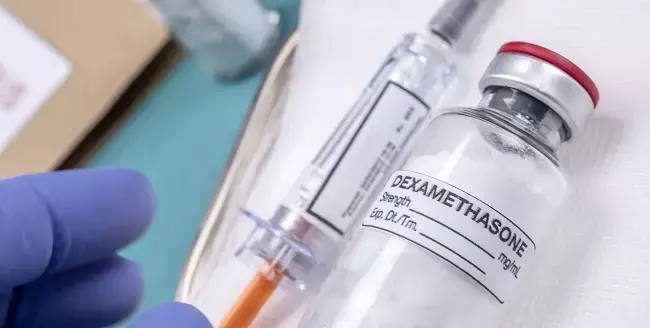- Home
- Medical news & Guidelines
- Anesthesiology
- Cardiology and CTVS
- Critical Care
- Dentistry
- Dermatology
- Diabetes and Endocrinology
- ENT
- Gastroenterology
- Medicine
- Nephrology
- Neurology
- Obstretics-Gynaecology
- Oncology
- Ophthalmology
- Orthopaedics
- Pediatrics-Neonatology
- Psychiatry
- Pulmonology
- Radiology
- Surgery
- Urology
- Laboratory Medicine
- Diet
- Nursing
- Paramedical
- Physiotherapy
- Health news
- Fact Check
- Bone Health Fact Check
- Brain Health Fact Check
- Cancer Related Fact Check
- Child Care Fact Check
- Dental and oral health fact check
- Diabetes and metabolic health fact check
- Diet and Nutrition Fact Check
- Eye and ENT Care Fact Check
- Fitness fact check
- Gut health fact check
- Heart health fact check
- Kidney health fact check
- Medical education fact check
- Men's health fact check
- Respiratory fact check
- Skin and hair care fact check
- Vaccine and Immunization fact check
- Women's health fact check
- AYUSH
- State News
- Andaman and Nicobar Islands
- Andhra Pradesh
- Arunachal Pradesh
- Assam
- Bihar
- Chandigarh
- Chattisgarh
- Dadra and Nagar Haveli
- Daman and Diu
- Delhi
- Goa
- Gujarat
- Haryana
- Himachal Pradesh
- Jammu & Kashmir
- Jharkhand
- Karnataka
- Kerala
- Ladakh
- Lakshadweep
- Madhya Pradesh
- Maharashtra
- Manipur
- Meghalaya
- Mizoram
- Nagaland
- Odisha
- Puducherry
- Punjab
- Rajasthan
- Sikkim
- Tamil Nadu
- Telangana
- Tripura
- Uttar Pradesh
- Uttrakhand
- West Bengal
- Medical Education
- Industry
Preoperative dexamethasone does not increase risk of surgical wound infection

A large scale trial by Monash University has definitively found a drug commonly used during anaesthesia before surgery to prevent nausea and vomiting does not increase the risk of a surgical wound infection as once feared.
The steroid drug, dexamethasone, is often given by anaesthetists during surgery. However, because of its effects on the immune system there has been growing concern that it may increase the risk of wound infections, particularly in vulnerable populations such as patients with diabetes.
As a result, there has been a reluctance to use it, even though more than half of patients are at risk of experiencing nausea and vomiting after their surgery. The same drug has recently been shown to decrease the risk of death from COVID-19 in severely ill patients.
Now, a large clinical trial led by Monash University and the Australian and New Zealand College of Anaesthetists Clinical Trials Network, has found that administering a low-dose of dexamethasone during anaesthesia for surgical operations does not increase the risk of surgical wound infections.
It found the drug may be safely given to patients undergoing surgery without causing an increase in these infections, including to patients with diabetes.
This is an important finding because these infections are common. In Australia alone, there are at least 200,000 healthcare-associated infections including wound infections that are diagnosed in hospital patients each year, costing approximately $1 billion a year.
The Perioperative Administration of Dexamethasone and Infection Trial (PADDI), led by Professor Tomás Corcoran, enrolled 8725 patients having all types of non-cardiac surgery over the past four years from 55 hospitals across Australia, New Zealand, Hong Kong and South Africa.
Half of the patients received a single 8 mg dose of dexamethasone and the other half received placebo during their surgery and were followed up for six months after surgery.
The findings showed that 8.1 per cent of patients who received dexamethasone experienced a wound infection at 30 days after surgery, compared to 9.1 per cent in the placebo group, indicating no evidence of any major differences between the groups.
Professor Tomás Corcoran, Director of Research in the Department of Anaesthesia and Pain Medicine, Royal Perth Hospital and Adjunct Clinical Professor in the Central Clinical School at Monash University, was the lead researcher and said the study may influence anaesthesia practice around the world.
"We have clearly shown that administering dexamethasone during surgery does not increase the risk of wound infection, in particular in patients with diabetes. Hence, it is safe to use this drug when clinically indicated." Professor Corcoran said.
"After a surgical procedure, there is always a concern that patients will suffer a major complication. There is an ongoing need to run large scale clinical studies such as PADDI, which produce reliable results to determine how to reduce major complications after surgery and to improve the safety of our patients."
https://www.nejm.org/doi/10.1056/NEJMoa2028982
Hina Zahid Joined Medical Dialogue in 2017 with a passion to work as a Reporter. She coordinates with various national and international journals and association and covers all the stories related to Medical guidelines, Medical Journals, rare medical surgeries as well as all the updates in the medical field. Email: editorial@medicaldialogues.in. Contact no. 011-43720751
Dr Kamal Kant Kohli-MBBS, DTCD- a chest specialist with more than 30 years of practice and a flair for writing clinical articles, Dr Kamal Kant Kohli joined Medical Dialogues as a Chief Editor of Medical News. Besides writing articles, as an editor, he proofreads and verifies all the medical content published on Medical Dialogues including those coming from journals, studies,medical conferences,guidelines etc. Email: drkohli@medicaldialogues.in. Contact no. 011-43720751


